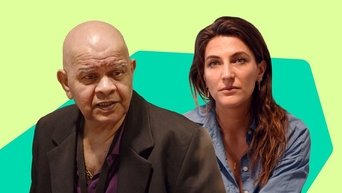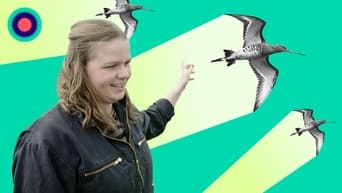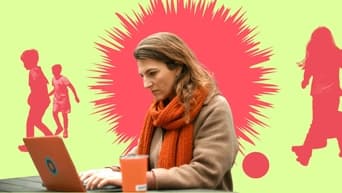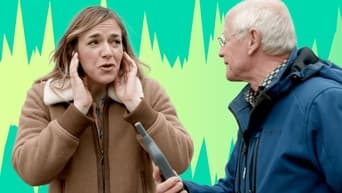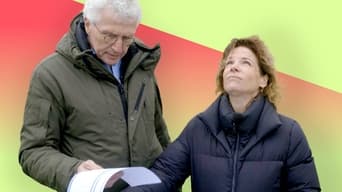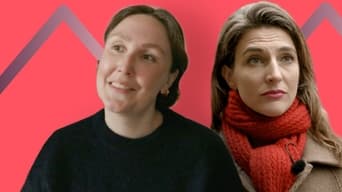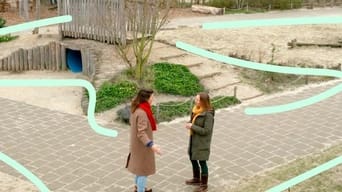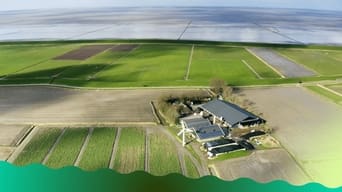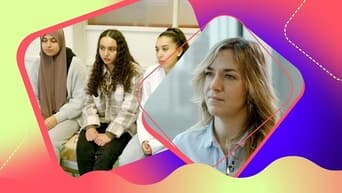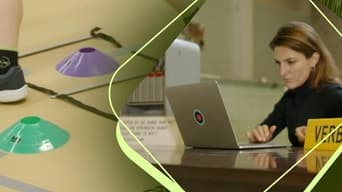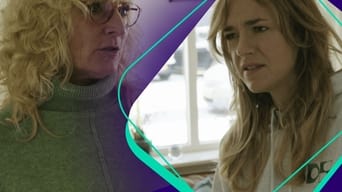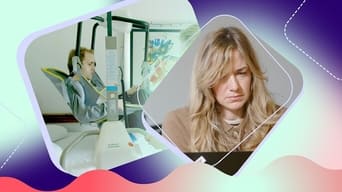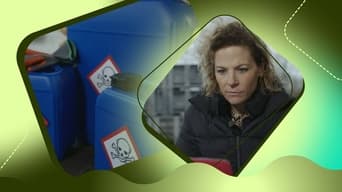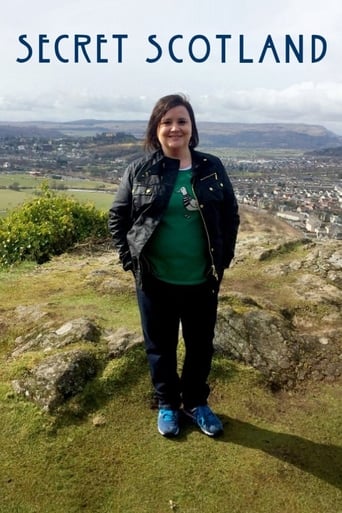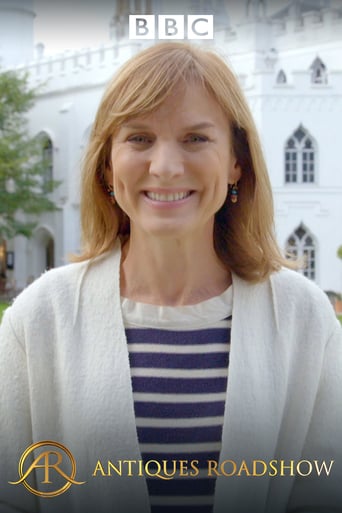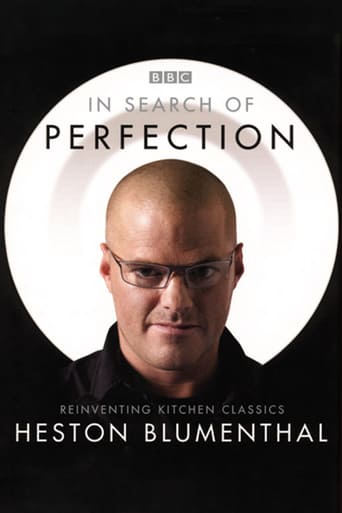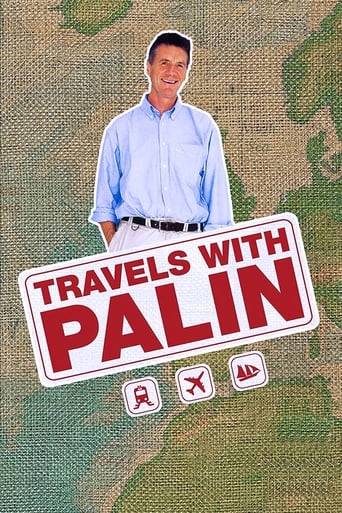Pointer Season 6
With 30 Day Free Trial!
Pointer
2019 / TV-G
Together with you, Pointer exposes unfair matters based on investigative journalism.
Watch Trailer
Pointer Season 6 Full Episode Guide
Tenants in social housing are stuck. Often they can only move by exchanging homes. A senior who lives too large and wants a smaller house, for example because the children have left home, can then exchange with a young family that is looking for a place. This is legally allowed, sometimes even with retention of rent. And socially, this helps people find a more suitable home, who would otherwise have stayed in their old house. Tenants who want to exchange each other's front door keys only encounter all kinds of obstacles. For example, corporations regularly turn against an exchange. Why? Money often turns out to be a reason.
More and more young people in the Netherlands are homeless. Vulnerable young people without a social network are often alone from the age of eighteen. Finding affordable housing seems almost impossible, so they wander from bank to bank, or even sleep on the street. There are plenty of support agencies to turn to, but they are often unable to offer what this group needs most: a roof over their heads. The government launched an action plan two years ago to change this. First a house, then other help, was the idea. But will that plan get off the ground?
How do you prevent online scams? We all do it: online shopping. But it also often goes wrong. For example, you think you are ordering gold jewelry online from an older jeweler couple in the Netherlands who are retiring, but in reality you are getting plastic junk from China. Every day, 40 people report online trade fraud via a webshop. Can online fraud still be stopped? And who is responsible for doing this, the police, the judiciary or should we as consumers pay more attention?
Helping 1 million elderly people grow old happily, that was the mission of healthcare organization Zorg van Toen. If you are bankrupt, you may not be able to buy it. There are no warnings about the personal installation of the levers without any regulations. After the collapse, some very elderly residents, such as Simmy (88) and Theun (90), had to quickly look for another care institution. How is it said to have gone so wrong?
Heavily armed soldiers from the Russian army sail through our waters. They keep a close eye on NATO countries on board research ships, which secretly engage in espionage and possible sabotage in the North Sea and Baltic Sea. Pointer starts an international investigation and discovers that the Russians are closer than we think.
Are smartphones indispensable in the lives of young people? Or would they be better off without it? The mental health of young people, especially girls, has deteriorated alarmingly in recent years. This roughly coincides with the rise of smartphones and increasingly addictive social media, but does this also have a causal relationship or are other factors more important?
Many young people still end up in debt. Experts point to the increasing number of digital temptations lurking for young people, such as the option to pay for things afterwards. Is the young brain resistant to such temptations? Once you have debt, it is difficult to get rid of it. Some municipalities are experimenting with buying off young people's debts in exchange for social compensation. For example, Thalissa (26) became debt-free after a number of difficult years. But not all municipalities are convinced of this method. How do we best help young people with debts?
At the start of a new school year, many schools are uncertain whether there will be a teacher for every class. Every little bit helps and lateral entrants are desperately needed. Yet these career changers have a lot of criticism about their trajectory: endless assignments and reports, too little time and money, no good guidance and a general lack of customization. How is this possible in light of the major staff shortages? More than half of school leaders also believe that this route, which is intended to attract more people to education, can and should be improved.
Who is responsible for the safety of women on public transport? We asked more than 7,000 women where they feel unsafe and en masse they pointed to stations and public transport. For fear of transgressive behavior, they close themselves off, avoid scary places or arm themselves. We also discovered that carriers do not map out how differently men and women experience safety. How do NS, ProRail and regional transport companies ensure that everyone feels safe? We spoke to experts and the women who use public transport.
At the beginning of this year, one of the largest PFAS contaminations in the Netherlands was found in the water of the Jelsumervaart around Leeuwarden. The poison even exceeded the standard in some places by 900 times. How come this wasn't discovered earlier? And what does this mean for the people who live on the water or have a vegetable garden on the polluted canal? Are their concerns about PFAS in their fruits, vegetables and eggs justified? And what about the rest of the Netherlands: how is it possible that more and more private individuals are discovering that their own chickens lay eggs that contain PFAS?
Since the Care and Coercion Act came into effect in 2020, as little 'involuntary care' may be provided in dementia care. This also means that people with dementia who do not pose a danger to themselves or those around them should not simply be locked up. And so some nursing homes choose to open the door. People with dementia who go where they want as much as possible, even if they live in a nursing home. Is that possible or is it too big a risk? How do family and healthcare institutions deal with this?
Where do you put ten billion liters of manure? In the Netherlands we are suddenly faced with a surplus of 300,000 tankers full of manure. Due to new rules, farmers are much less allowed to use their own land, so they have to look for other solutions. But which ones are they? Processing is expensive, fermentation is limited. And so a hard, emotional battle arises for the last pieces of land in the Netherlands that we can fertilize, at high costs. Those who can no longer participate will perish. At the same time, other countries are eager for our manure. Why can't it go there?
The young farmer Burchart (25) is having a hard time. He does his best to save disappearing meadow birds, such as the godwit. But compensation for nature measures often does not outweigh the significant time investment and lower milk yield. What future prospects are there for young farmers who want to take nature into account? The drastic decline in the number of godwits in the Netherlands is indicative of the biodiversity crisis in rural areas. Who is willing to pay the bill for nature? The dairy processor, the supermarket or the consumer?
Playing outside is perhaps more important than ever, especially now that children spend hours in front of a screen every day. But when they play, children make noise. And while one person finds loud children's voices and popping balls 'fun', another suffers from it in an increasingly busy Netherlands. Sometimes so much that municipalities find themselves in a difficult dilemma about what to do with leeway. Because which interest is more important: that of the child playing outside or that of the neighbor experiencing nuisance? How do municipalities deal with this? And is the balance between fun and rest still maintained?
Hissing, sexually explicit comments and annoying chasing: many women suffer from street harassment. We investigated where women feel unsafe in the Netherlands and received thousands of responses. Municipalities have been struggling for years to tackle street intimidation. What works? Information and campaigns or repression? As of July 1, street intimidation is punishable. A step in the right direction, but what about enforcement? We speak to victims, investigate the role of education and look at what boas and the police can do about this persistent problem.
Anyone who follows the Radio Genoa account on X (Twitter) is inundated with videos of black people committing violence or behaving inappropriately. Radio Genoa's message? "This happens when you let refugees into Europe." The videos have been viewed billions of times, also because followers retweet them so much. Among them, PVV leader Geert Wilders and Elon Musk, who bought Twitter and renamed it X. Since then, these types of extreme accounts that want to create fear and hatred for people with a migration background have grown strongly. We reveal who is behind this account and find out what the consequences are for society.
There is a good chance that you pay for CO2 compensation through your gas contract. Gas suppliers would have you believe that 'green' projects elsewhere in the world can eliminate your CO2 emissions, but most projects are based on hot air. Gas suppliers claim to be able to greenwash gas, but mislead consumers. Should the supervisor intervene? Meanwhile, a surprising Chinese newcomer is entering the market: the largest pork production company in the world, whose 'green' projects are already expected to 'make up for' air travel emissions.
Due to the military threat, Defense wants to fly more fighter jets over the Netherlands. There is a good chance that more fighter jets will also take to the air from Leeuwarden air base. Local residents are already struggling with a lot of noise pollution from the overshooting aircraft. And the new plans require the demolition of at least fifty homes around the base, because it becomes unliveable there due to the loud noise. Residents are doing everything they can to prevent this. And how is it possible that fifty homes may disappear, while the municipality of Leeuwarden wants to build a new asylum center, almost against the fences of the air base?
More than 700 planes overhead in one day. Winnie de Wit from Assendelft has been fighting for years to reduce the number of flights over her house, but so far without success. Local residents of the possible fourth approach route - which is drawn over parts of Utrecht and Gelderland - are concerned that they too will no longer be able to sleep peacefully or that the beautiful nature in their area will be disturbed.
High rent while your house is full of mold and vermin. Young tenants are often the victims of the overstressed rental market. The housing shortage is so great that landlords are asking exorbitant prices for houses. Sometimes up to half of your monthly income, while the home is in poor condition. What can you do then? The law states that tenants have the right to lower rent or improvements if a house is really bad. But what about this in practice? In the private rental sector you can only enforce this through the courts. An expensive route that few people dare to take. Are tenants footing the bill for the runaway housing market?
A special scheme should help those affected by the benefits affair to make a new start. But those who turn to the municipality for help often have to wait a long time. As a result, confidence in the government is once again being dented. Large differences between municipalities also cause a lot of frustration. Why does one municipality pay for a complete renovation and the other municipality not even pay for a new chair? Doesn't this well-intentioned arrangement actually widen the gap between citizens and government?
The outdoor play space of Dutch children is under pressure. At a time when we have to build many new homes and land is scarce, play space sometimes seems to come last, while playing outside is so important for the development and health of children. We visit Emmeloord and The Hague, where space loses out to housing. And we investigate the situation with the size of perhaps the most important outdoor play area for children: the schoolyard. How strict are the standards that must guarantee outdoor play space for children in the battle for the land?
Will the gas drill go into the bottom of the Wadden Sea one more time? The Dutch Petroleum Company submitted a permit application for the gas field off the coast of the village of Ternaard 9 years ago. Three cabinets later, it has still not been decided whether the project can go ahead. Last week the decision was postponed again. Why is this taking so long? The Netherlands must get rid of gas and the risks to nature are great. How can we be sure that no lasting damage will be done to the UNESCO World Heritage Site? The cabinet no longer wants it and the municipality, the water board and the province are also against it. What is the State Secretary still waiting for?
We receive tens of thousands of food advertisements every year: KFC as a Christmas meal on TV, Snickers bars in online videos and Coca-Cola on billboards. At least three-quarters of all those food advertisements are about unhealthy food; produce more than a billion euros annually. Meanwhile, 2.6 million Dutch people are already in favor of the government's one lifestyle program after another. The call for an advertising ban - just like with tobacco - is increasing, but doesn't all that temptation make healthy living much more difficult for the vulnerable? Who are actually the biggest advertisers and do they want to stop?
There are at least 45,000 advertisements online luring Eastern European sex workers abroad, including the Netherlands. What exactly is hidden behind these advertisements? Last year, journalists in an international research team investigated how these sex workers can become victims of human trafficking and sexual exploitation. This digital method of investigation is also a method that the Dutch police and the Public Prosecution Service want to apply, because the underlying criminal networks remain out of reach with the current approach.
Flooded streets and underwater basements: flooding is becoming increasingly common in large parts of the Netherlands. For example, in 2021, tens of thousands of households in Limburg experienced a devastating flood. Houses were flooded and in the city of Valkenburg alone, 2,300 houses were damaged and 700 homes were temporarily uninhabitable. More than two and a half years after the driveway, we are talking to residents and administrators in Limburg. Are sufficient measures being taken to prevent a flood in the future as much as possible?
About 900,000 people are exposed to harmful noise during their work. And that can, for example, lead to a ringing in your ear, hypersensitivity to sound or hearing loss. Sometimes this is due to a loud bang, such as when police officer Raya had a fireworks bomb thrown at her head. Much more often, however, hearing damage occurs gradually, due to long-term exposure to noise that is slightly too loud. For example, lifeguard Jack tells Pointer that he suspects his hearing loss was caused by all those hours in a reverberating swimming pool. What can employers do to prevent the risks of hearing complaints? And are they doing enough?
Thousands of tenants are stuck this winter. Their houses are poorly insulated, sometimes with only single glazing in the windows, forcing residents to choose: either high heating costs or wearing sweaters on top of each other to fight against moisture, mold and draughts. The government says that landlords must improve homes, homes with poor energy labels first. But Pointer discovered that the energy label does not properly indicate how cold a house is. For example, a home can have a label and still be ice cold due to gaping cracks or incorrect insulation. Why do we focus on energy labels?
In winter, many people like to light a crackling fire. Cozy right? But wood smoke regularly causes nuisance and can cause health problems, as is the case with Dirk. He experiences nuisance because local residents burn wood, it makes him short of breath and keeps him awake at night. If he reports it to the municipality, little happens. What can he do?
You can have fillers injected into your face to fill in lines and folds, or, for example, to give your lips more volume. More and more people are using them. Legally, only doctors are allowed to inject fillers. Yet you also see many beauticians without the correct papers, a lucrative business in fillers. This is not without risk, because if a filler is injected incorrectly, it can cause serious complications. Is there sufficient supervision of these actions?
Where should people who are dependent on someone else 24 hours a day focus? There is limited space in large healthcare institutions and the number of people working in the institutions has also been declining for years. The attention, regularity and structure of home cannot be guaranteed in such an institution. Families are faced with a dilemma: keep it at home, even if that is no longer possible, or take matters into their own hands? Everywhere in the Netherlands, parents join forces in small-scale housing initiatives that combine care and shelter. How feasible and affordable are these types of alternatives? Which buttons can be turned and by whom?
Pointer investigates the power of the Brussels pesticide lobby. More and more scientists are concerned about the relationship between pesticides and diseases such as Parkinson's, but plans to reduce the use of pesticides are encountering great resistance. The controversial herbicide Glyphosate may continue to be sold on the European market for the next ten years and an important law to halve the use of pesticides by 2030 is being rejected by the European Parliament. What tactics does the lobby use and why is it so successful?
Free Trial Channels
Seasons















